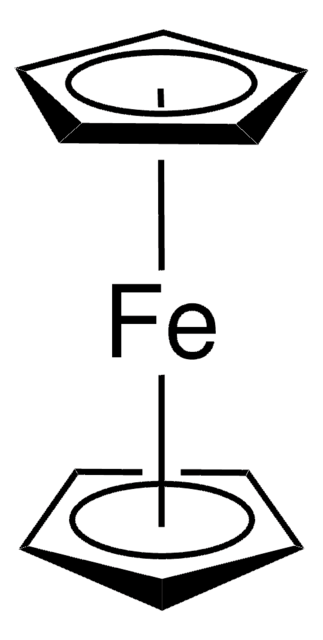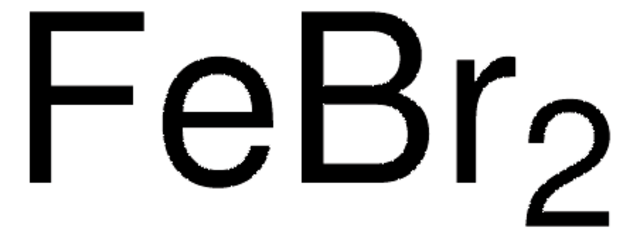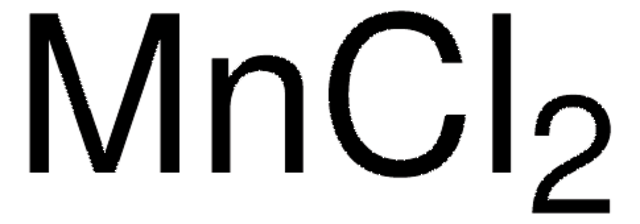Key Documents
450936
Iron(II) chloride
AnhydroBeads™, −10 mesh, 99.99% trace metals basis
Synonim(y):
Ferrous chloride, Iron dichloride
About This Item
Polecane produkty
linia produktu
AnhydroBeads™
Próba
99.99% trace metals basis
zanieczyszczenia
≤150.0 ppm Trace Metal Analysis
wielkość cząstki
−10 mesh
mp
677 °C (lit.)
gęstość
3.16 g/mL at 25 °C (lit.)
Zastosowanie
battery manufacturing
ciąg SMILES
Cl[Fe]Cl
InChI
1S/2ClH.Fe/h2*1H;/q;;+2/p-2
Klucz InChI
NMCUIPGRVMDVDB-UHFFFAOYSA-L
Szukasz podobnych produktów? Odwiedź Przewodnik dotyczący porównywania produktów
Opis ogólny
Zastosowanie
- A doping agent in the fabrication of mixed organic-inorganic perovskite for high-efficiency perovskite solar cells. The incorporation of iron(II) chloride improve the overall efficiency of the solar cell.
- A precursor for synthesizing various iron(II) coordination complexes. These complexes are significant due to their unique optical and electronic properties, which are essential for various applications, including solar energy conversion and catalysis.
- As a precursor in the synthesis of iron-nitrogen-carbon (Fe–N–C) catalysts for proton exchange membrane fuel cells.
Informacje prawne
wyposażenie dodatkowe
Hasło ostrzegawcze
Danger
Zwroty wskazujące rodzaj zagrożenia
Zwroty wskazujące środki ostrożności
Klasyfikacja zagrożeń
Acute Tox. 4 Oral - Eye Dam. 1
Kod klasy składowania
8B - Non-combustible corrosive hazardous materials
Klasa zagrożenia wodnego (WGK)
WGK 1
Temperatura zapłonu (°F)
does not flash
Temperatura zapłonu (°C)
does not flash
Środki ochrony indywidualnej
Eyeshields, Faceshields, Gloves, type P3 (EN 143) respirator cartridges
Wybierz jedną z najnowszych wersji:
Masz już ten produkt?
Dokumenty związane z niedawno zakupionymi produktami zostały zamieszczone w Bibliotece dokumentów.
Klienci oglądali również te produkty
Produkty
Nanocząstki plazmoniczne mają unikalne właściwości optyczne, które można dostosować do różnych zastosowań w przemyśle biotechnologicznym1-8 i elektronicznym9-16.
Nasz zespół naukowców ma doświadczenie we wszystkich obszarach badań, w tym w naukach przyrodniczych, materiałoznawstwie, syntezie chemicznej, chromatografii, analityce i wielu innych dziedzinach.
Skontaktuj się z zespołem ds. pomocy technicznej










